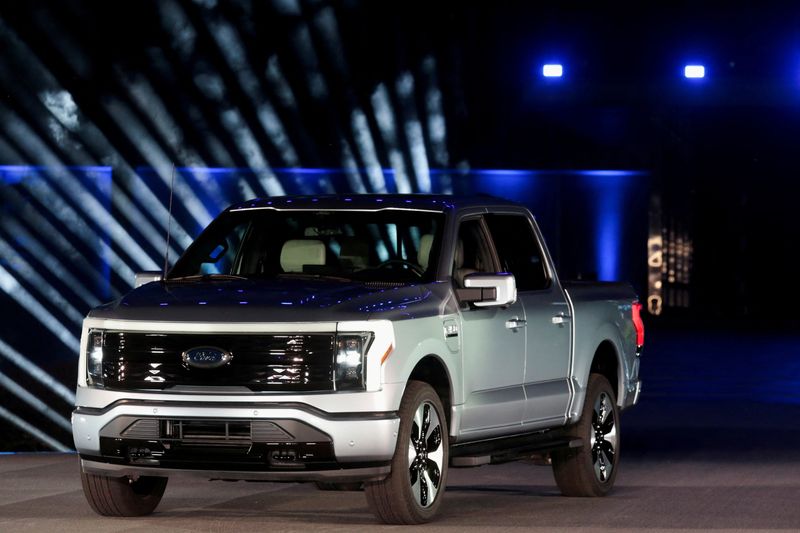Market Electric cars getting ready for mass buyers
2022.12.15 07:34
[ad_1]

Market Electric cars getting ready for mass buyers
Budrigannews.com – For Tesla (NASDAQ:) investors, the past year was harrowing. Inc. and rival electric vehicle startup companies that aspired to be as successful as Tesla CEO Elon Musk.
Shares in many EV startups plummeted as interest rates rose and financial markets shifted. Rivian Automotive Inc., whose market value was higher than Ford Motor Company’s (NYSE:) Co lost over 70% of its value in the past year shortly after going public in 2021.
Other EV startups had worse outcomes. Arrival, a manufacturer of electric vans, warned that it could run out of money in less than a year. The sleek Air luxury EVs that Lucid Group Inc., backed by Saudi Arabia’s sovereign wealth fund, struggled to construct. Xpeng, a Chinese Tesla rival (NYSE:) More than 80% of Inc.’s shares lost value.
The difficult part comes next: persuading more mainstream customers to follow along.
Over a trillion dollars are being invested by the auto industry in a ground-breaking transition from combustion engines to software-controlled electric vehicles. Electric vehicles’ promise of cleaner and safer transportation has been embraced by automobile manufacturers and government policymakers from Shanghai to Detroit. California and several European nations have stipulated that new combustion passenger vehicle sales must cease by 2035.
Established automakers like Toyota Motor (NYSE:) were humbled by Tesla Inc.’s surge to become the world’s most valuable automaker, achieving a $1 trillion valuation last year. VW AG (OTC:) and Volkswagen Corp. that previously resisted going electric.
The world’s major markets will see an influx of brand-new electric vehicles beginning next year, ranging from pickup trucks to middle-class SUVs and sedans.
Forecasters and executives in the industry do not agree on the rate at which electric vehicles could take over half or even the entire global vehicle market.
More Czech Republic limits energy prices
Battery electric vehicles now account for about 21% of the market in China, the world’s largest automotive market. Electric vehicles make up about 12% of all passenger vehicle sales in Europe. However, EVs only hold about 6% of the market share in the United States.
According to executives and analysts in the industry, a lack of public fast-charging infrastructure and the rising cost of EV batteries, which are caused by shortages of key materials and uncertainty over government subsidies that have boosted EV purchases in major markets like the United States, China, and Europe, are two of the barriers to the adoption of EVs.
According to AutoForecast Solutions, a consulting firm, electric vehicles could make up about 26% of all vehicles produced worldwide and a third of the market in North America by 2029.
According to AFS President Joe McCabe, sales of electric vehicles probably won’t rise in a straight line. EV adoption will slow down if there is a recession next year, as many economists anticipate.
In 2027, Wards Intelligence predicts that combustion vehicles will account for just under 80% of sales in North America. Wards analyst Haig Stoddard stated at a recent conference that manufacturers “expect strong ICE (NYSE:)” based on the product plans of automakers. (combustion engine) volume into the following decade.”
Established automobile manufacturers like Mercedes, Ford, and General Motors Co. (NYSE:) exhibited dozens of brand-new electric vehicles in an effort to oppose Tesla and the newcomers.
The majority of these automobiles will begin mass production in 2023 and 2024.
According to McCabe, there may be 74 distinct electric vehicle models available in North America by 2025. However, he predicts that fewer than 20% of those models will likely sell more than 50,000 vehicles annually. With too many niche models and too much capacity, automakers might be stuck.
Europe and China’s overall vehicle demand is also threatened by slowing economies.
Backed by investors eager to ride the wave of mass mobility that Henry Ford and other automotive pioneers started, new automakers emerged in the early 20th century. The global auto industry had consolidated by the 1950s, and once-famous brands like Duesenberg had vanished.
Whether or not the current crop of electric vehicle manufacturers will follow a similar path will be determined over the next few years.








